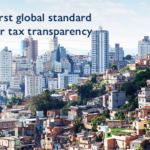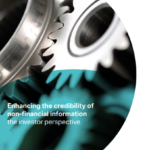According to new research presented by The Global Reporting Initiative (GRI), sustainability reporting has become an essential tool to help businesses and governments rebuild trust and confidence in the wake of economic collapse.
GRI – the pioneering developer of the worlds most widely used sustainability reporting framework contributed to two high-profile research projects into the trends of reporting. These studies reveal the global economy is set to become radically more transparent over the next decade. The exploration of Integrated Reporting by a number of multinational corporations has already caught the attention of key stakeholders, including the financial markets and regulatory bodies. As a result, businesses will be expected to provide significantly higher levels of corporate transparency and product traceability. These are factors that GRI is already considering in future strategic developments of the GRI Guidelines.
Transparency is a key component for companies and governments to manage resources and public expectations. Consequently, sustainability reporting is becoming more mainstream, recognized as the best tool to measure, report and communicate performance in the ESG field. says Nelmara Arbex, Director, Learning and Services at GRI.
The studies, The Transparent Economy and Carrots and Sticks, investigate the latest developments in sustainability reporting in the regulatory field and in relation to societys recent challenges. Both will be launched at The 2010 Amsterdam Global Conference on Sustainability and Transparency taking place on 26-28 May, 2010.
The Transparent Economy report is based on research led by Volans, a sustainability consultancy-think-tank, in cooperation with GRI, analyzing the trends that will drive reporting until 2020.
Sustainability reporting is playing a crucial role in the process of rebuilding trust in businesses, financial institutions and governments following the financial meltdown. As a result, new forms of integrated reporting are evolving rapidly, says the reports author, sustainability champion John Elkington.
Carrots and Sticks Promoting Transparency and Sustainability is the latest edition of a study initially published in 2006 to provide readers with an easy reference and overview of mandatory and voluntary approaches to sustainability reporting and assurance throughout the world. A co-production of GRI, the United Nations Environmental Program (UNEP), KPMG Sustainability, and the University of Stellenbosch Business School, the study covers the majority of Organization for Economic Co-operation and Development (OECD) countries as well as emerging market countries such as Brazil, India and South Africa.
The financial crisis has sparked a renewed focus on regulation. The role of governments in sustainability reporting is an important part of this trend, as the state plays a stronger regulatory role in ensuring a minimum level of disclosure and risk prevention, says Teresa Fogelberg, Deputy Chief Executive at GRI. This means more rigorous sustainability reporting is going hand in hand with regulation.
The full publications will be available at The 2010 Amsterdam Global Conference on Sustainability and Transparency, the worlds biggest sustainability reporting event. The Transparent Economy publication will be launched during the Volans & GRI Research Program: Trends in Future Reporting conference session on Thursday, 27 May at 2 pm. The Carrots and Sticks publication will be launched during the Learn about Regulatory Approaches around the Globe conference session on 27 May at 11



